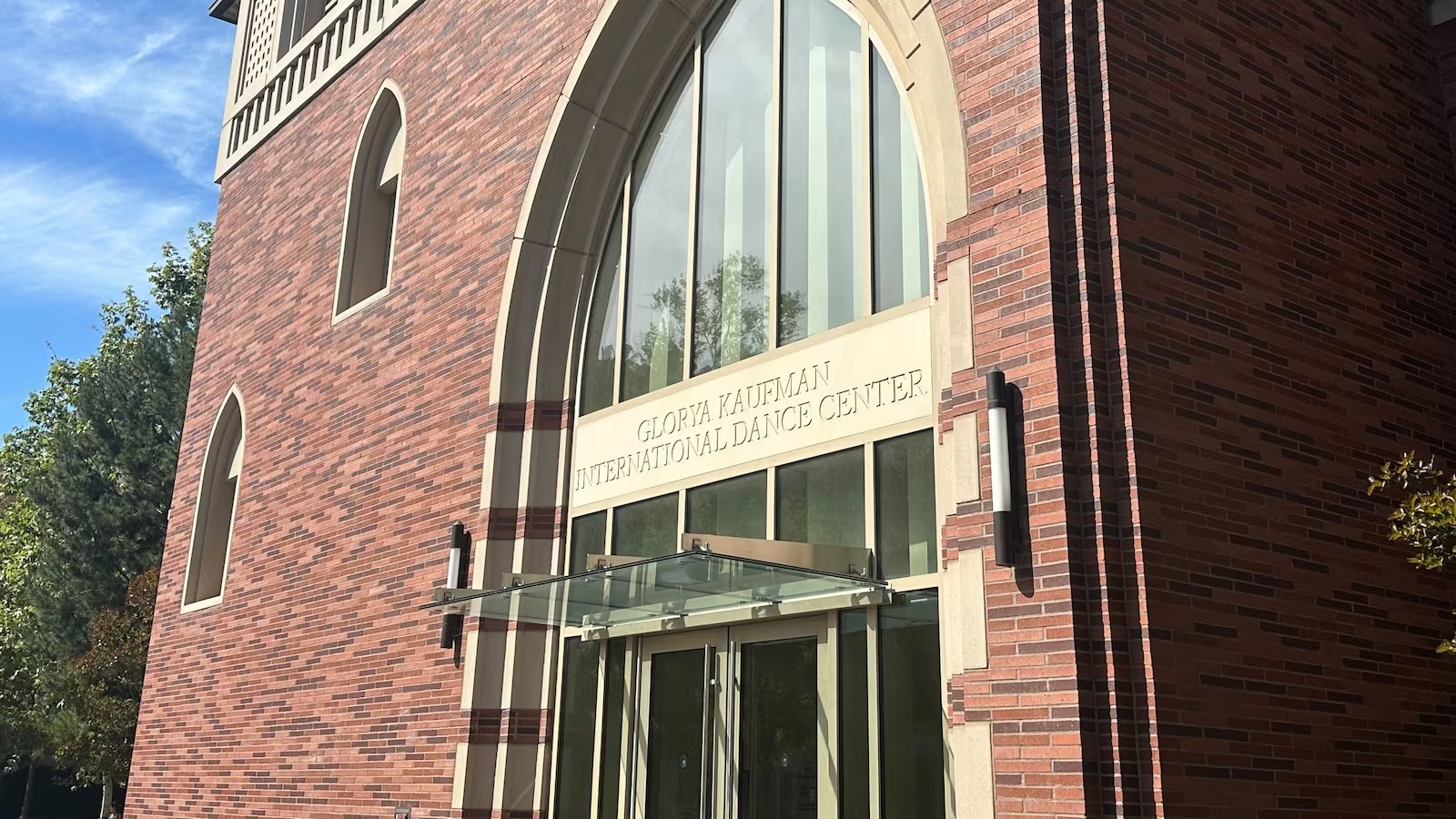
USC Kaufman addresses discrimination allegations in letter to students
A letter sent to USC Glorya Kaufman School of Dance students says reports of potential student-to-student discrimination are being addressed by university officials.
In a letter exclusively obtained by Annenberg Media, Kaufman Dean Julia Ritter addressed allegations of racist incidents brought to her by members of the Kaufman community.
Ritter wrote in the email that the accusations have been forwarded to the Office for Equity, Equal Opportunity and Title IX (EEO-TIX). The email also advised students to contact the EEO-TIX office for support.
“I want you to know that the Kaufman School takes such reports very seriously,” Ritter wrote. “In order to be fair and impartial to all individuals involved, the EEO-TIX process necessarily takes time.”
On April 1, students held an all-school meeting in a Kaufman dance studio at 10:30 a.m. to address the incidents, which they said started at the beginning of the academic year.
In an email two hours prior to the meeting, Kaufman Admission and Student Services Officer Miki Frank said classes would continue as planned and students who wanted to organize “are welcome to use the courtyard.”
“The school recognizes the severity of the allegations and urgency of the students’ concerns,” Frank wrote in the email. “Yet this is not a time frame within which school leadership can facilitate meaningful, thoughtful dialogue.”
Despite the email, the meeting proceeded and dozens of Kaufman students, faculty and staff attended voluntarily. During the meeting, witnessed by a reporter, students remorsefully admitted to engaging in hate speech, racial harassment and public humiliation.
The letter from the dean reminded students of their commitment to USC’s unifying values.
“An important part of that compact was your pledge ‘to promote a culture in which people do not rush to judge others,‘” she wrote. “You also agreed that your actions would be ‘guided by empathy and grounded in facts and truth.‘”
The USC Student Handbook and the Resolution Process for Discrimination, Harassment and Retaliation use similar language while describing student conduct. These documents help guide appropriate and equitable responses to all reports and formal complaints.
“The university grants students the presumption that they are not responsible for a violation of university policy until a determination is made at the conclusion of a formal disciplinary process,” Ritter wrote, citing the student handbook.
She also referenced USC’s strict prohibition of acts of retaliation and intimidation.
“Allowing the proper process to run its course before imposing judgment or consequences on classmates is not just a requirement of university policy; it is the right thing to do,” Ritter wrote.
At the same time, she clarified that this does not diminish the seriousness of the concerns raised.
“The pursuit of truth should be reflected in all aspects of our daily lives, not just in our work as dance artists,” Ritter wrote.
Post a comment